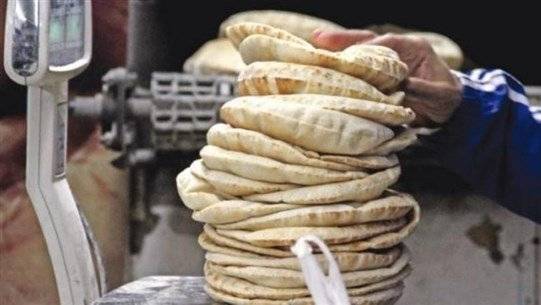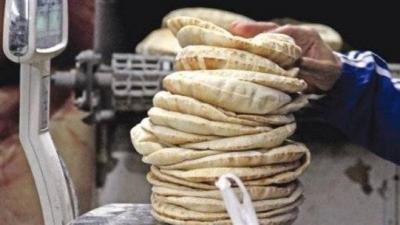Corruption has permeated the flour file, leading to an unprecedented crisis in Lebanon's history, one that could "shake" society. "Let them lift the subsidy on flour and the bread crisis will be resolved," is the equation posed by bakery owners these days as they seek to exit the bread crisis that has entered its second week with no signs of a solution. The citizen alone bears the burden of searching for loaves that are unavailable in stores, while having to pay 200,000 Lebanese pounds for gasoline to reach the nearest bakery to purchase a loaf of bread for 15,000 pounds if he finds it, meaning a loaf practically costs 215,000 pounds.
While Lebanese politicians are focused on appointing a new Prime Minister, the people's eyes are on the loaf of bread, which has disappeared due to the ongoing political conflict between mill owners, bakeries, and the Ministry of Economy. The poor are left paying 30,000 to 40,000 pounds for bread, with the important thing being to have food available at home. They wonder: Where are the deputies in the face of the bread crisis? What have they done and what plans have they presented to protect the bread of the poor?
But who is behind the bread crisis and what is the connection between the decision to lift subsidies and the related aspects regarding croissants, manakish, and saj bread? According to information, the smell of corruption wafts from within this file, which has intensified the crisis and dried up bread sources in the market. The story of the loaf began when Minister of Economy Amin Salam decided to withdraw subsidized flour from manakish and pastry ovens. Sources confirm that this misstep by the minister was a precursor to the bread crisis we are witnessing today.
The sources do not hide the infiltration of corruption in this file, with its most prominent elements being the mills that have started selling subsidized flour at non-subsidized prices, with the price of a ton reaching 850 dollars. Additionally, there is an influx of "plain" flour bags without registered brands, as a method of smuggling subsidized flour. This is aside from the emergence of expired flour that has started to spread in bakeries, particularly manakish and saj ovens.
Sources confirm that 80% of flour in bakeries in Bint Jubayl is expired, and a large percentage of bakeries in the Nabatieh region have purchased this flour at high prices and are using it, threatening the food security of the citizen. According to sources, a security patrol from the state security closed one of the warehouses in Majdal Silim, discovering flour that did not comply with health standards. The sources indicate that this flour had been stored for a while, most of it dating back to a month from this year, meaning that someone was aware of the subsidy removal and hoarded it.
In the end, it was expired flour causing food poisoning. It's no surprise, the sources confirm, that we are starting to witness poisoning cases and the spread of cancerous diseases in the near future, all due to greed. The bread crisis does not end here; the crisis is largely fabricated to push the state to completely lift the flour subsidy. According to information, the flour coupons received by bakeries to produce Arabic bread are sold in the black market.
Some bakeries are closed yet receive flour through these coupons, selling the ton for 850 dollars, while other bakeries produce a small quantity of Arabic bread, with part of the subsidized flour going towards croissants and cakes, and the remaining amount is sold on the black market for 20 million pounds per ton, meaning that the bakery owner achieves enormous profits from this operation without any additional costs. These are the pillars of the crisis, as sources indicate, for which the Minister of Economy must take responsibility. He must either completely lift the subsidy on flour or maintain the subsidy for all types, as the fragmentation of support has created the crisis, which is expected to worsen in the coming days unless any amendment is made to the decision.
Thus, we are facing a serious crisis on every front: a crisis of expired flour used in manakish and saj, and a crisis of flour sold in the black market instead of producing bread. In both cases, the citizen is " paying the price" and is forced to search for a loaf of bread that is not available. Shop owners have appealed to deputies to intervene to put an end to this crisis as it has exceeded all expectations; many are left without a loaf of bread, which is their daily sustenance.
Mohammed says, "Have mercy on the people," and questions when the area's representatives will intervene to address the crisis, asking if it will be after it’s too late, and if they don't stand by the people now, when will they? Ali Qmeih, a member of the southern bakery association, does not hide that bread is now at risk, and producing it has become difficult daily; thus, he regulates production based on available flour, indicating that we are entering a very critical and unprecedented phase. If this is not addressed, the loaf of the poor will become a thing of the past.
In conclusion, the bread of the poor is at risk and everyone is passing the responsibility; only the crisis merchants are profiting. When will the fig leaf fall to hold them accountable and put an end to the bread farce?




